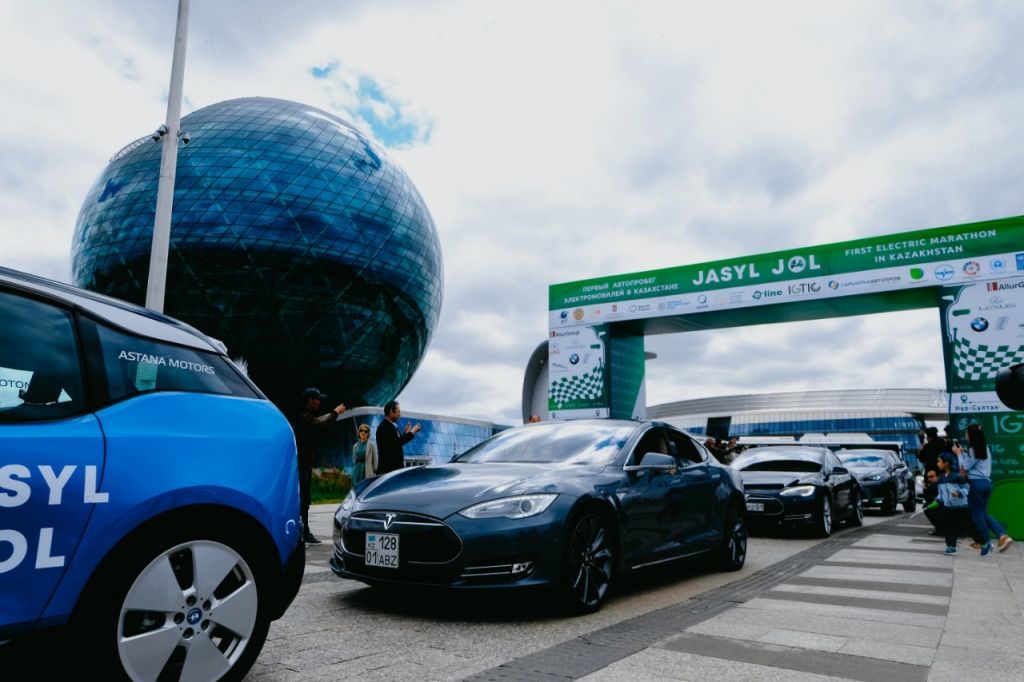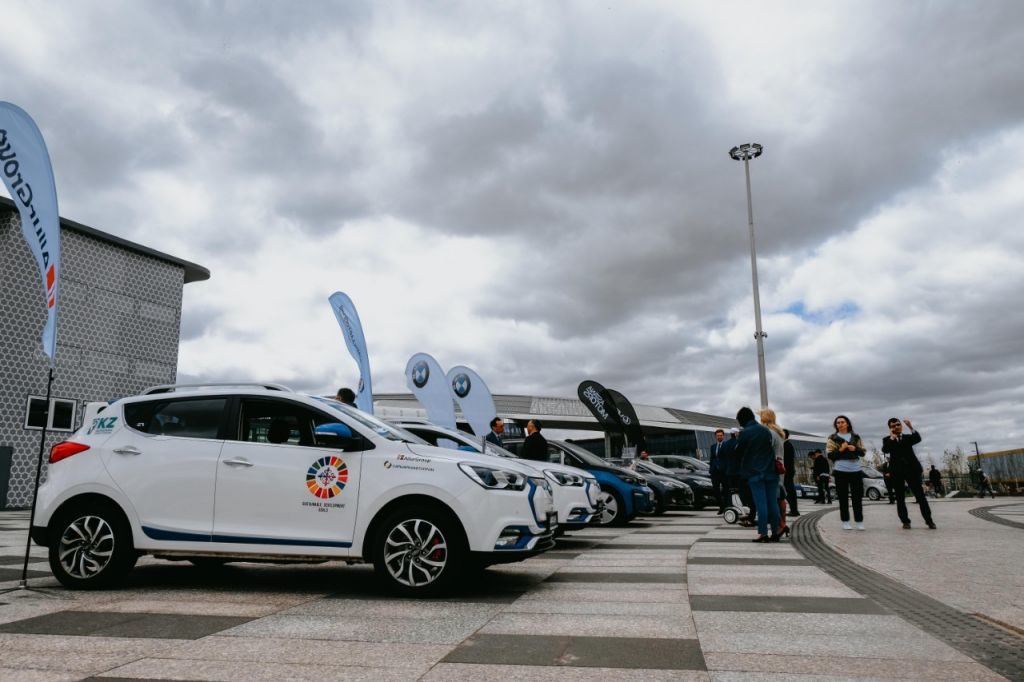NUR-SULTAN – The first Jasyl Jol electric car rally appropriately started on June 5, World Environment Day, at the capital’s EXPO 2017 site. The cars, which are noiseless and pollution free, set off along the 540-kilometre Nur-Sultan-Burabai-Nur-Sultan route.
“Sustainable development is impossible without sustainable transport. Transport is the catalyst for progress on at least nine SDGs (United Nations’ Sustainable Development Goals). These are not abstract indicators, but a question of the quality and safety of our lives and the lives of our loved ones,” said United Nations Development Programme (UNDP) Permanent Representative in Kazakhstan Vitaly Vremish during a roundtable before the rally.
The forum centred on the theme Promoting Alternative Modes of Transport as a Contribution to Reducing Emissions and Developing Sustainable Cities in Kazakhstan. Attendees included representatives of government agencies, car companies, international and non-governmental organisations and the Kazakh business community. The rally was organised by the International Green Technologies and Investments Centre (IGTIC) with the support of the UNDP Development Programme in Kazakhstan, Kazakh Ministry of Energy and event partner Oskemen Titanium and Magnesium Works.
The roundtable also included an electric car exhibit with models by BMW and Smart Fortwo ED (Germany), JAC (Kazakhstan), Jaguar (U.K.), Lexus Hybrid (Japan), Tesla (U.S.) and busses by Ankai (China).
China’s Anhui Jianghuai Automobile Co. and JAC launched production in Kazakhstan in 2016. The JAC iEV7S is the first serial electric car produced in the country to receive official approval from the Eurasian Economic Union.
Nazarbayev University students (NU Team) presented their Jrun electric car. With the support of Nazarbayev University Research and Innovation System (NURIS) engineers, the students, who acted as engineers and designers, assembled, tested and presented their car in Singapore this year, where they were ranked 14th.
“Using the best available technology, IGTIC seeks to ensure production of not only passenger cars, but also freight electric vehicles, special equipment and busses in Kazakhstan. At the same time, [we seek] to create an infrastructure for their use. These [create] thousands of new jobs and promising types of business, some of which quite have a chance to become export-oriented,” according to the IGTIC.


